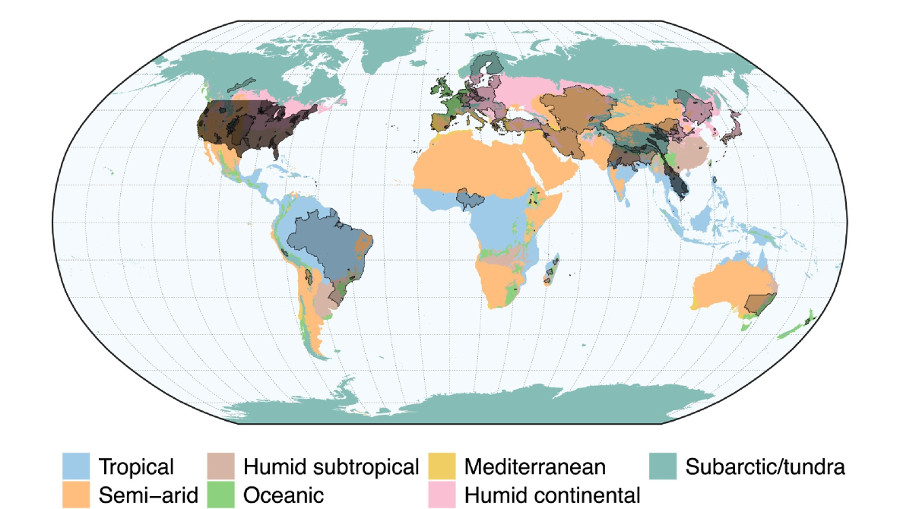
Climate change is expected to lead to increased soil erosion in many locations worldwide affecting ecosystem services and human well-being. Through a systematic review of 224 modelling studies, we provide a global assessment of the impact of climate change on soil erosion and the adaptation potential through land use change and soil conservation. We account for the robustness of each study based on a statistical analysis of ten methodological aspects and an expert consultation. Results show a global increasing trend in soil erosion towards the end of the 21st century, with the highest increase projected in semi-arid regions. Land use change characterized by agricultural expansion and deforestation aggravate the impact. Reforestation, agricultural land abandonment and soil conservation practices can entirely compensate the impact of climate change on soil erosion. This stresses the need for soil conservation and integrated land use planning. From the obtained weights per study we can conclude that there is a lot of uncertainty in the methods applied, without a clear trend towards more robust studies. Based on the results of the expert consultation, we recommend to use a climate model ensemble of at least five climate models, based on the latest CMIP6 climate scenarios. These data should be downscaled and bias corrected using trend preserving quantile methods. Finally, the post-processed climate data should be applied in a soil erosion model forced by precipitation and runoff. Considering the most robust methodologies of the different aspects of the uncertainty cascade will lead to better spatial evaluation of the impact of climate change on soil erosion and identification of most effective adaptation strategies.